Cystran 2.5 Tablet 10's
MRP ₹114
(Inclusive of all Taxes)
₹17.1 Cashback (15%)
Provide Delivery Location
Online payment accepted
 Prescription drug
Prescription drugWhats That
Composition :
Manufacturer/Marketer :
Consume Type :
Expires on or after :
Return Policy :
About Cystran 2.5 mg Tablet
Cystran 2.5 mg Tablet belongs to the group of medicines called anti-spasmodic, and anti-cholinergic agents used to treat overactive bladder (OAB) with symptoms of urinary incontinence (urine leakage), urgent or frequent urination, increased night-time urination, dysuria (painful or difficult urination). Additionally, Cystran 2.5 mg Tablet is used to treat night-time bed-wetting in children above 5 years when other treatments have not worked.
Cystran 2.5 mg Tablet contains 'Oxybutynin', which works by blocking the release of a chemical transmitter called acetylcholine, responsible for bladder muscle contractions. Thereby relaxing the smooth muscles of the urinary bladder and stopping sudden muscle spasms (contractions). This helps control urine by delaying the initial desire to empty the bladder and increases the urine holding capacity of the bladder.
You are advised to take Cystran 2.5 mg Tablet for as long as your doctor has prescribed it for you, depending on your medical condition. In some cases, you may experience certain common side-effects such as dizziness, sleepiness, headache, facial flushing, constipation, dry mouth, dry skin, urinary retention, and diarrhoea. Most of these side-effects do not require medical attention and will resolve gradually over time. However, you are advised to talk to your doctor if you experience these side-effects persistently.
Consult your doctor if you are pregnant or breastfeeding; your doctor will prescribe only if the benefits outweigh the risks. Cystran 2.5 mg Tablet may cause dizziness, drowsiness, sleepiness, and blurred vision; so drive only if you are alert. Cystran 2.5 mg Tablet should not be given to children below 5 years as safety and efficacy have not been established. Avoid consuming alcohol along with Cystran 2.5 mg Tablet as it could lead to increased drowsiness. Keep your doctor informed about your health condition and medications to rule out any unpleasant side-effects.
Uses of Cystran 2.5 mg Tablet
Directions for Use
Key Benefits
Cystran 2.5 mg Tablet belongs to the group of medicines called anti-spasmodic and anticholinergic agents. Cystran 2.5 mg Tablet is used to treat overactive bladder with urinary incontinence symptoms (urine leakage), urgent or frequent urination, increased night-time urination, and dysuria (painful or difficult urination). Cystran 2.5 mg Tablet works by blocking the release of a chemical transmitter called acetylcholine, responsible for bladder muscle contractions. Thereby relaxing the smooth muscles of the urinary bladder and stopping sudden muscle spasms (contractions). This helps control urine by delaying the initial desire to empty the bladder and increasing the bladder's urine-holding capacity. Cystran 2.5 mg Tablet decreases both frequency and urgency of urination and helps with bladder control in people with overactive bladder. Cystran 2.5 mg Tablet is also used to treat night-time bed-wetting in children above 5 years when other treatments have not worked.
Storage
Drug Warnings
Do not take if you are allergic to any of its contents; if you have myasthenia gravis (muscle problems), narrow-angled glaucoma, blockage/perforation in the stomach or intestine, ulcerative colitis (inflammation of the large intestine), urinary blockage, frequent urination at night caused by kidney or heart disease. Inform your doctor if you are 65years or older; if you have an overactive thyroid, high blood pressure, glaucoma, irregular heartbeats, enlarged prostate, gastrointestinal disorders, indigestion, heartburn, heart, liver or kidney problems. Cystran 2.5 mg Tablet may cause dizziness, drowsiness, sleepiness, and blurred vision, so drive only if you are alert. Cystran 2.5 mg Tablet should not be given to children below 5 years as safety and efficacy have not been established. Avoid consuming alcohol along with Cystran 2.5 mg Tablet as it could lead to increased drowsiness. Consult your doctor immediately if you experience hallucinations while taking Cystran 2.5 mg Tablet .
Diet & Lifestyle Advise
- Pelvic floor exercises would help treat bladder spasms.
- Avoid foods like sugars, carbonated beverages, tea, citrus fruits, tomatoes, spicy foods, chocolate and tea.
- Limit fluid intake as excess fluid intake could cause an urge to urinate frequently.
- Avoid drinking excess alcohol or caffeinated drinks as they can worsen the symptoms.
- Maintain a healthy weight, and exercise regularly.
- Avoid smoking and alcohol intake.
- Take 6-8glasses or liquids every day.
- Avoid processed foods. Instead, choose whole, unprocessed foods.
- Include fruits, vegetables, and fibre-rich food in your diet.
Side Effects of Cystran 2.5 mg Tablet
- Dizziness
- Sleepiness
- Headache
- Facial flushing
- Constipation
- Dry mouth
- Dry skin
- Urinary retention
- Diarrhoea
Habit Forming
Therapeutic Class
All Substitutes & Brand Comparisons
RX
Oxyspas 2.5 Tablet 10's
Cipla Ltd
₹122
(₹10.98 per unit)
7% COSTLIER
Author Details
We provide you with authentic, trustworthy and relevant information
FAQs
Drug-Drug Interactions Checker List
- DIPHENHYDRAMINE
- DONEPEZIL
- ACETAMINOPHEN
- OXYCODONE
- HYDROCODONE
- METOPROLOL
- MIRABEGRON
- PROCHLORPERAZINE
- CHLORPROMAZINE
- CLOZAPINE
- HALOPERIDOL
- AMITRIPTYLINE
- IMIPRAMINE
- DOSULEPIN
- LEVODOPA
- AMANTADINE
- DIGOXIN
- DIPYRIDAMOLE
- KETOCONAZOLE
- ITRACONAZOLE
- FLUCONAZOLE
- ERYTHROMYCIN
- METOCLOPRAMIDE
- DOMPERIDONE
- QUINIDINE
Special Advise
- A regular dental check-up is recommended if you are on long-term treatment with Cystran 2.5 mg Tablet .
Disease/Condition Glossary
Overactive bladder (OAB): The contraction or tightening of bladder muscles causes bladder spasms. This is termed an overactive bladder. Continuous contractions may cause an urge to urinate. Overactive bladder is characterised by involuntary leakage of urine, excessive urination, and urgent need to urinate. The common causes of bladder spasms are urinary tract infections, drinking too much caffeine or alcohol, diabetes, constipation, impaired kidney function, bladder stones, enlarged prostate, or neurological disorders. Overactive bladder symptoms include urinating more than 8 times in a day and more than 2 times at night, strong and sudden need to urinate, leakage of urine, and loss of bladder control.

Have a query?
Alcohol
Safe if prescribed
You are recommended to avoid alcohol consumption while taking Cystran 2.5 mg Tablet . Alcohol intake, along with Cystran 2.5 mg Tablet , may cause increased drowsiness.
Pregnancy
Consult your doctor
Cystran 2.5 mg Tablet belongs to pregnancy category B. Please consult your doctor if you have any concerns regarding this; your doctor will prescribe you Cystran 2.5 mg Tablet only if the benefits outweigh the risks.
Breast Feeding
Consult your doctor
Cystran 2.5 mg Tablet may pass into breastmilk. Please consult your doctor if you have any concerns regarding this; your doctor will decide whether breastfeeding mothers can take Cystran 2.5 mg Tablet or not.
Driving
Safe if prescribed
Cystran 2.5 mg Tablet may cause dizziness, drowsiness, sleepiness, and blurred vision. Do not drive or operate heavy machinery unless you are alert.
Liver
Consult your doctor
Please consult your doctor before taking Cystran 2.5 mg Tablet if you have a liver impairment or any concerns regarding this.
Kidney
Consult your doctor
Please consult your doctor before taking Cystran 2.5 mg Tablet if you have kidney impairment or any concerns regarding this.
Children
Safe if prescribed
Cystran 2.5 mg Tablet can be given to children above 5years if prescribed by the doctor.

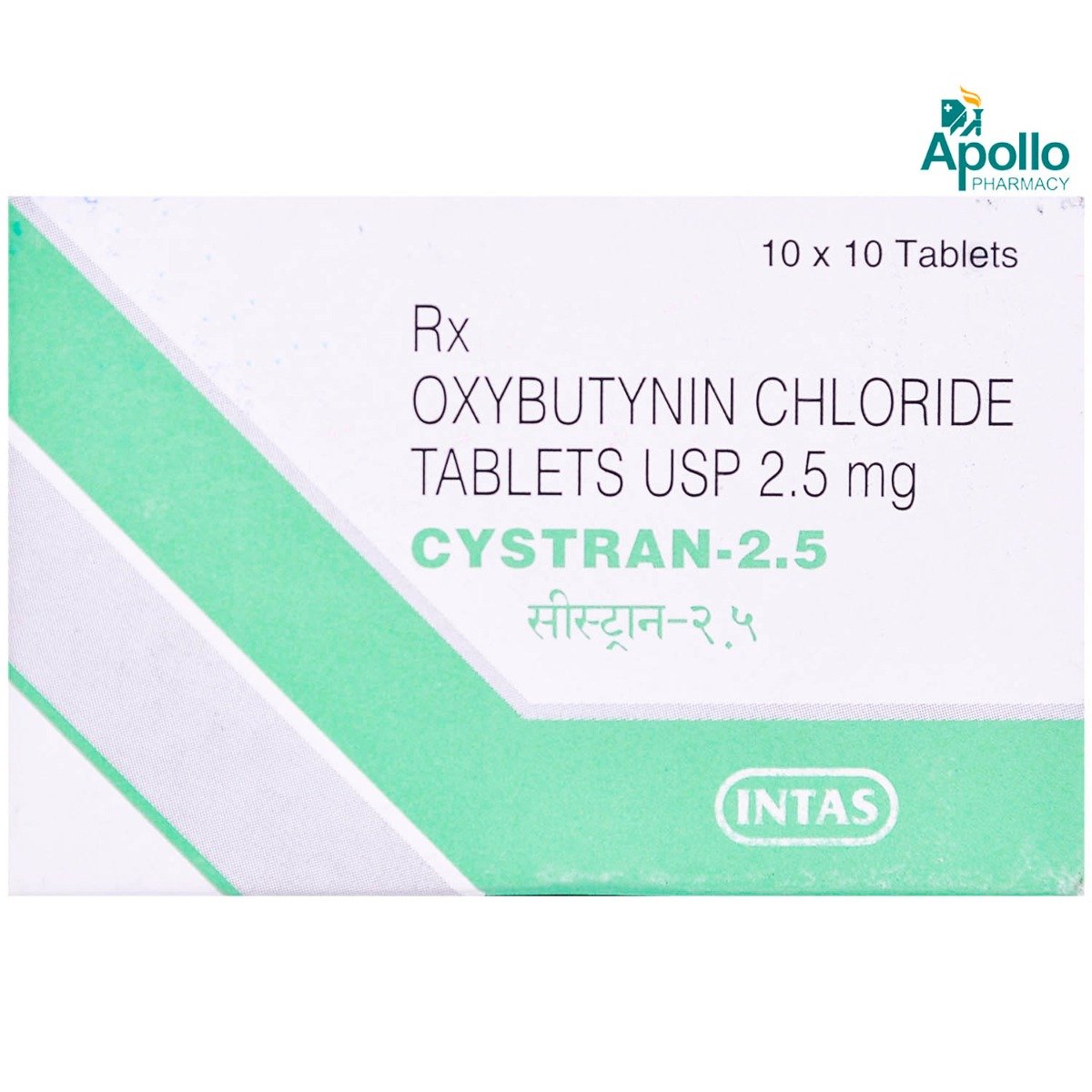
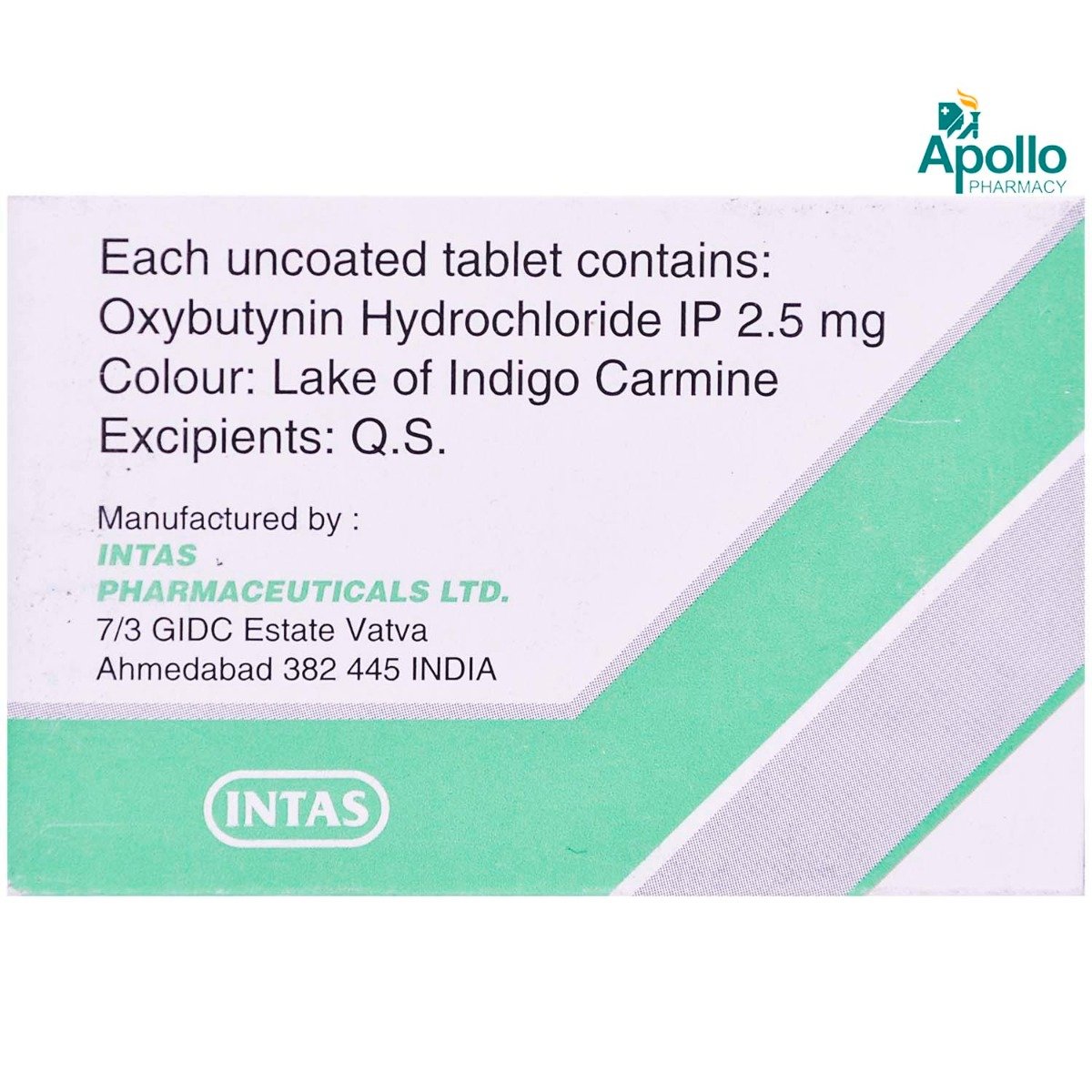
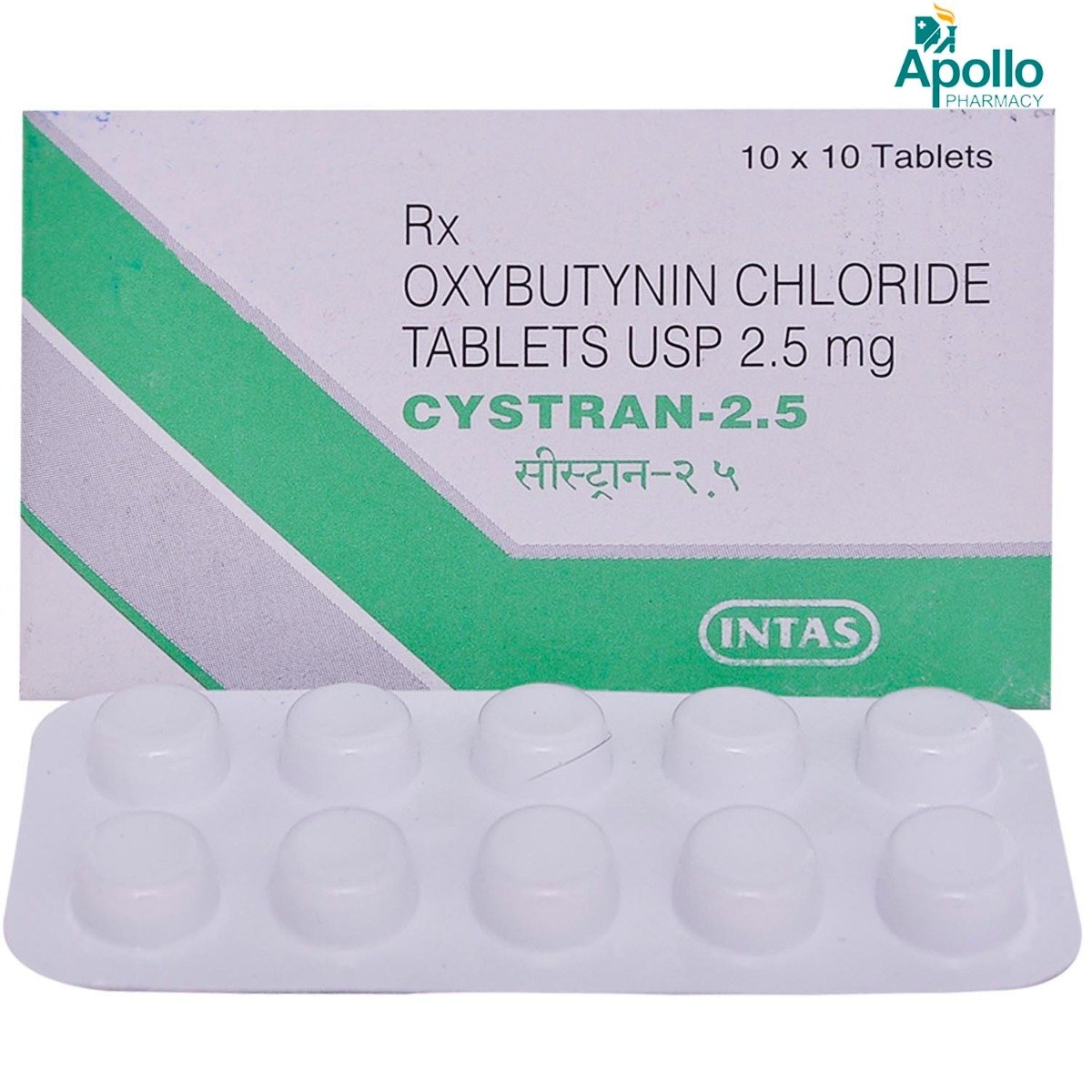
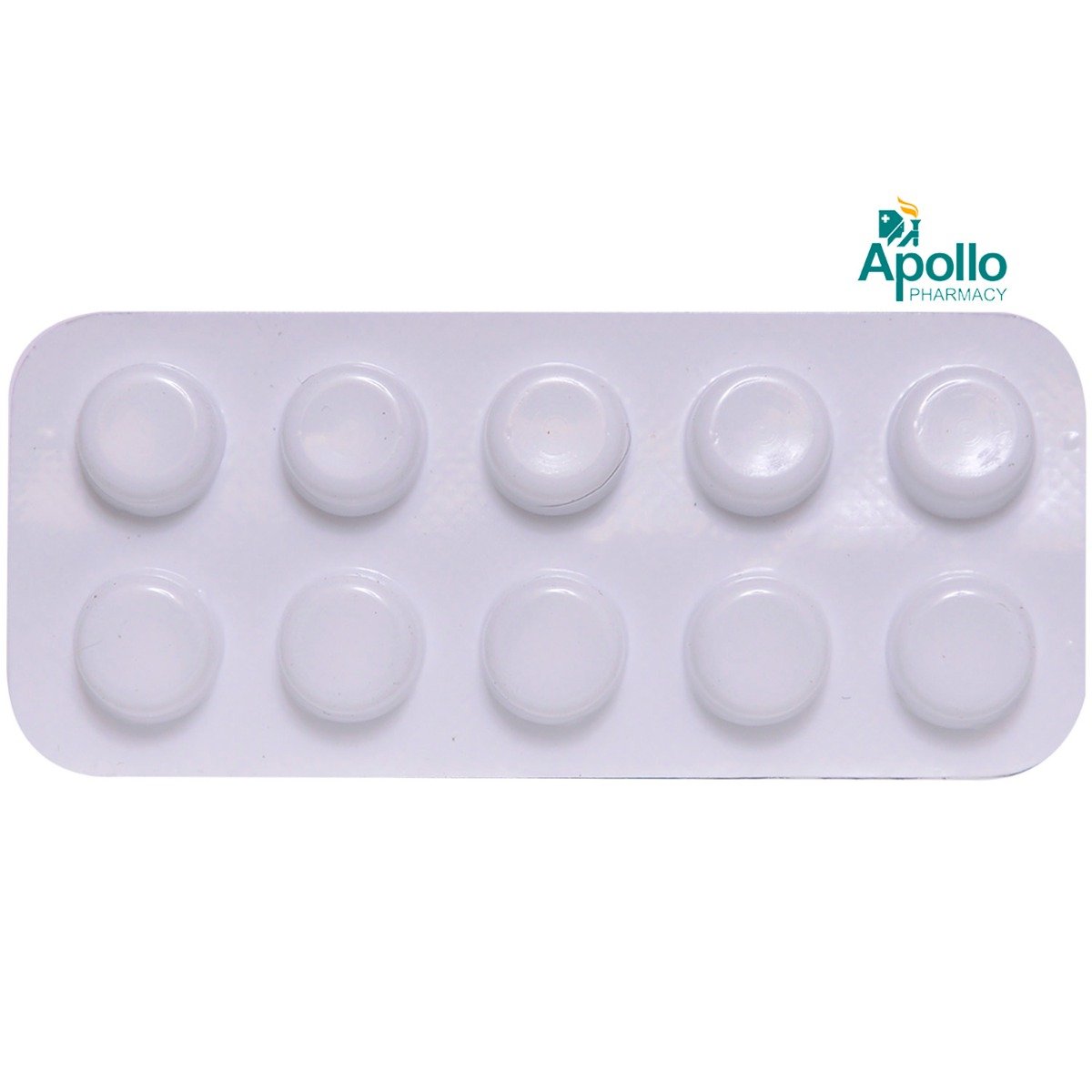
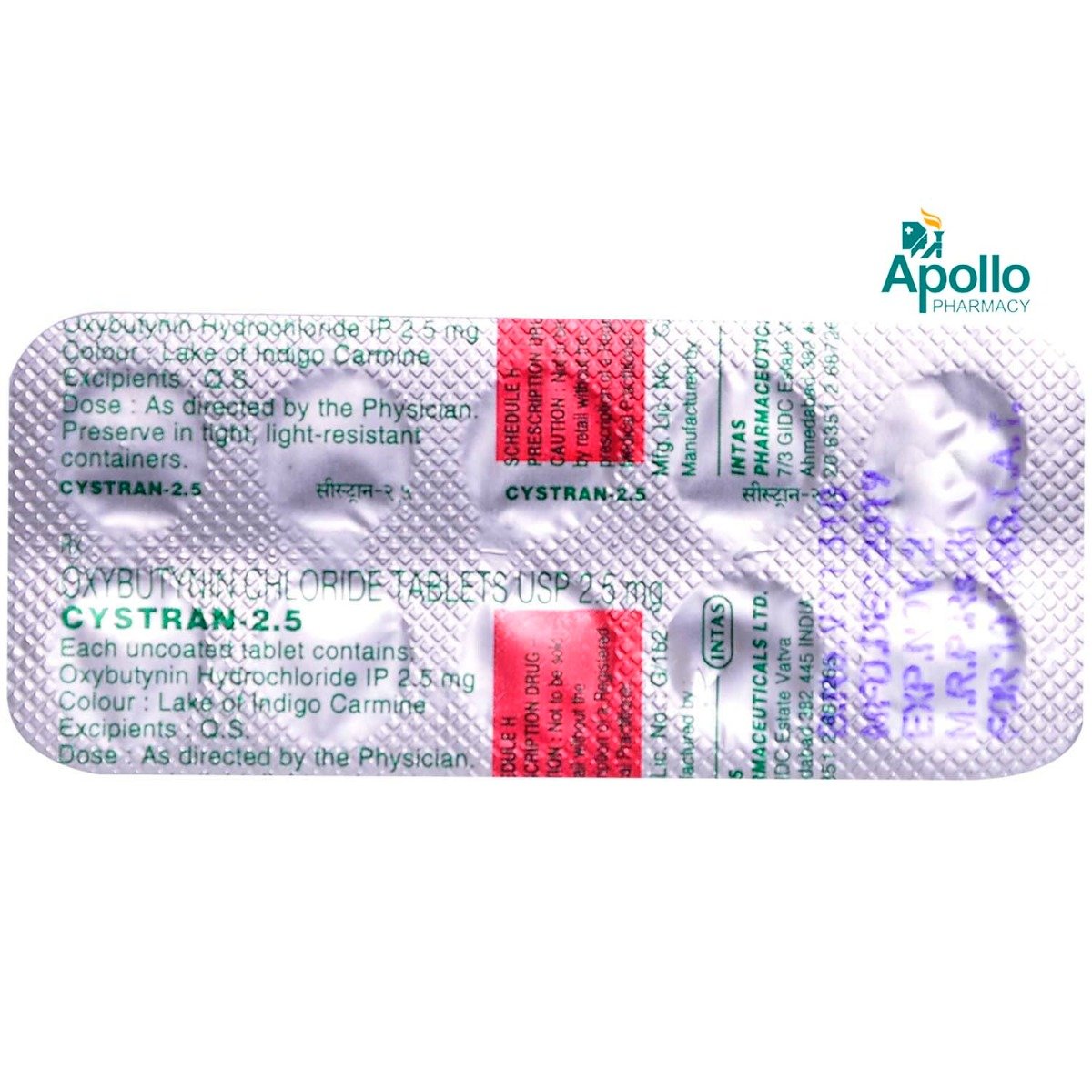






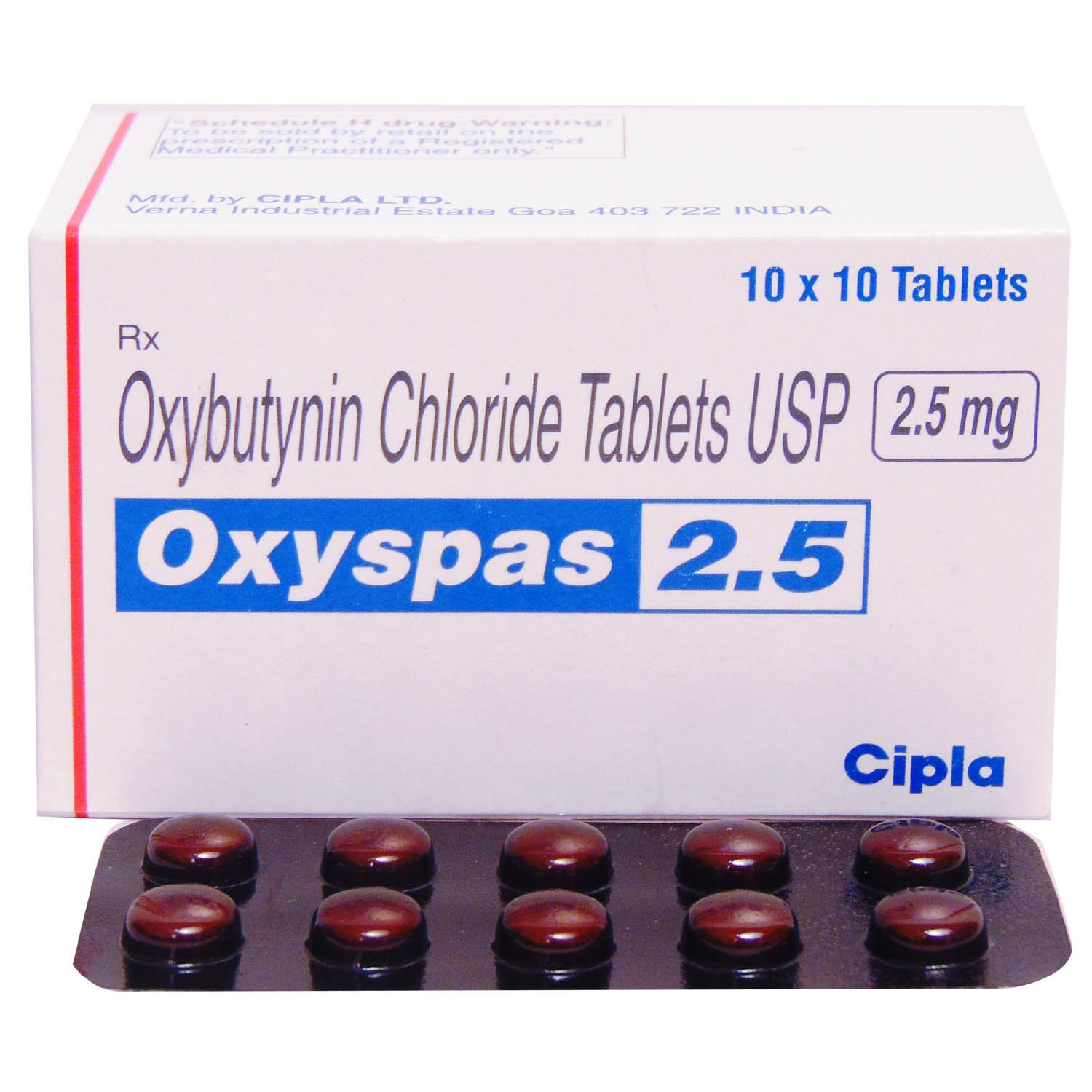

_0.jpg?tr=q-85)

